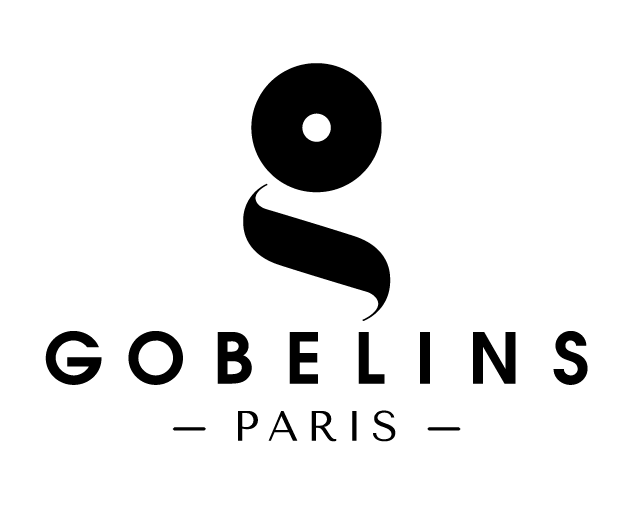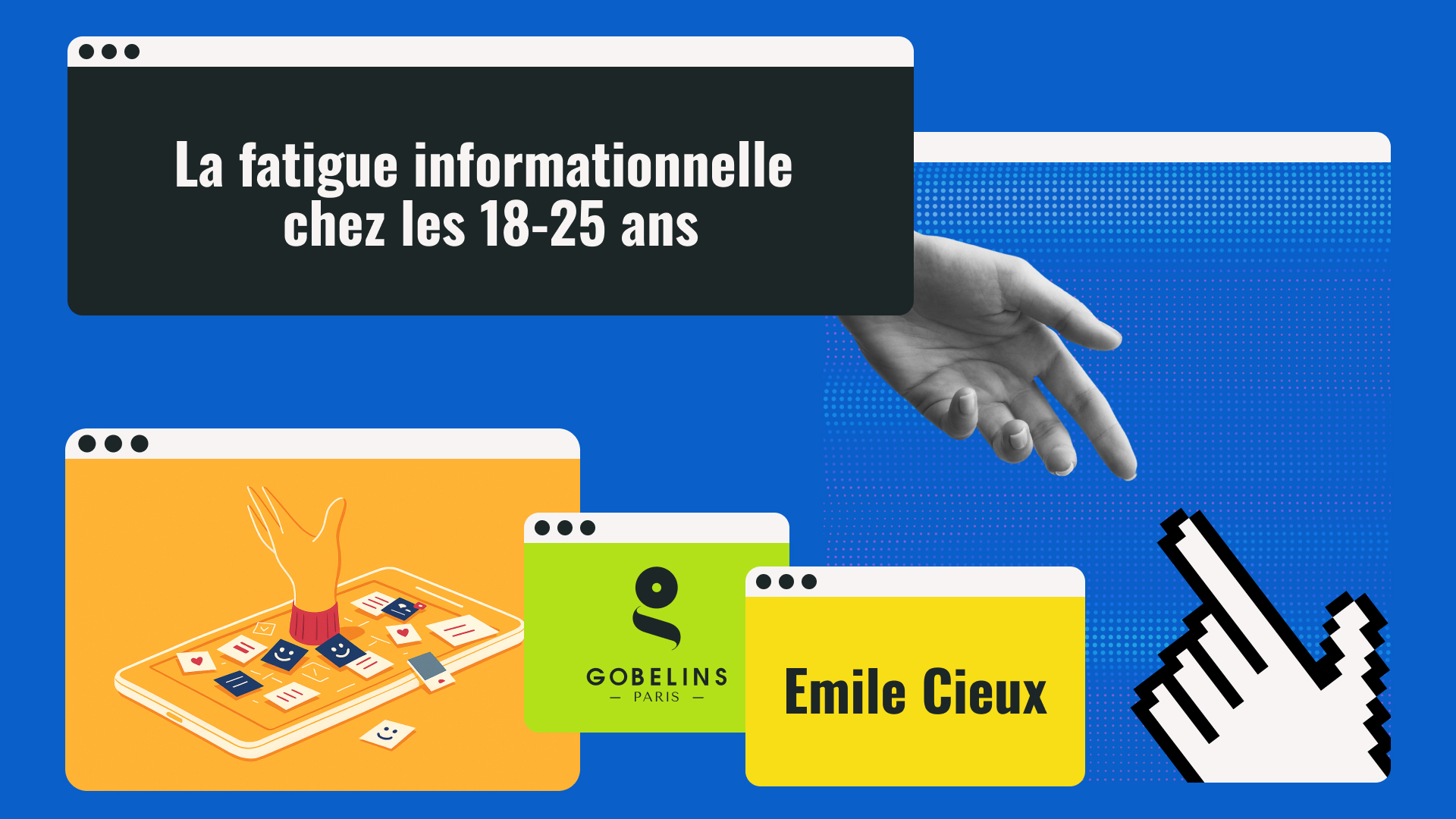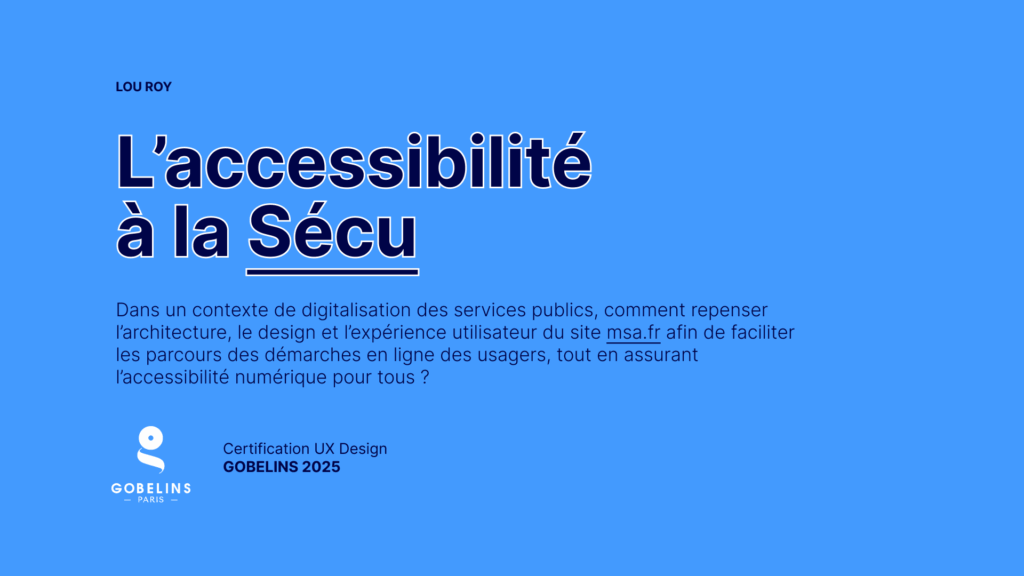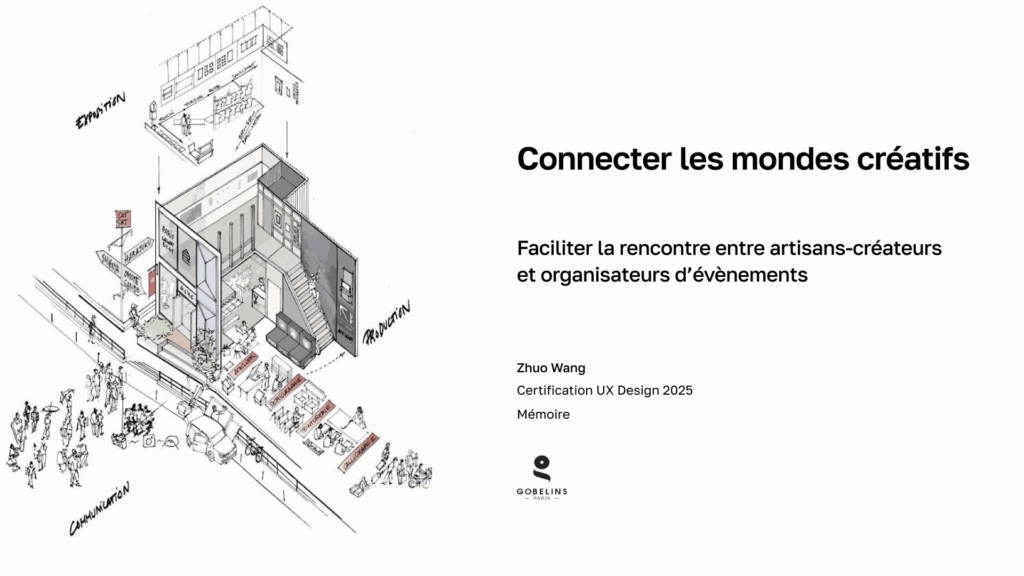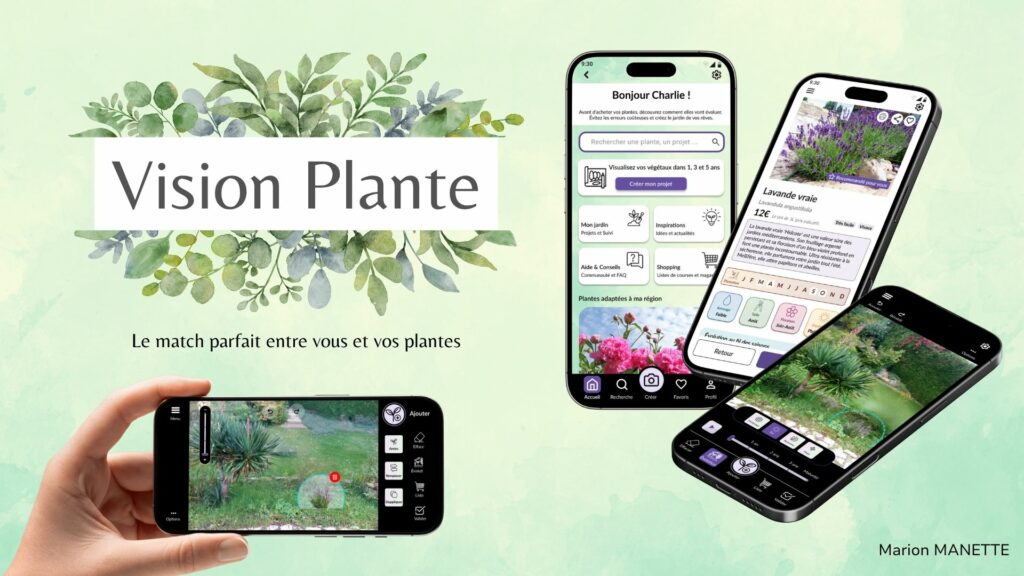Problématique : Comment aider les étudiants de 18 à 25 ans à mieux comprendre, questionner et adapter leur rapport à l’information numérique, alors qu’ils évoluent dans un flux constant, anxiogène et désorganisé affectant leur bien-être et freinant leur capacité à agir en citoyens éclairés ?
Auteur : Émile Cieux | Linkedin : https://www.linkedin.com/in/emile-cieux/
Formation : Certification UX Design 2024 – 2025
Durée du projet : 4 mois
Mémoire complet : Ouvrir le dossier PDF
À l’heure où plus d’un français sur deux déclare ressentir une fatigue informationnelle, la question de leur rapport à l’information devient cruciale. La première source d’information chez les 18-25 ans sont les réseaux sociaux. Ils y sont bombardés en permanence de flux numériques fragmentés, anxiogènes et souvent contradictoires. Ils oscillent entre hyperconsommation compulsive et désengagement total. Il s’agit de la population la plus touchée par ce phénomène de fatigue informationnelle. Cette situation affecte leur bien-être, brouille leurs repères et freine leur capacité à agir en citoyens éclairés.
Mon mémoire s’attaque à cette problématique : Comment aider les étudiants de 18 à 25 ans à mieux comprendre, questionner et adapter leur rapport à l’information numérique, alors qu’ils évoluent dans un flux constant, anxiogène et désorganisé affectant leur bien-être et freinant leur capacité à agir en citoyens éclairés ?
Pour y répondre, j’ai mené une recherche utilisateur auprès d’étudiants et jeunes diplômés, croisée avec des études récentes sur la surcharge informationnelle. Les résultats montrent un besoin fort d’outils pédagogiques ludiques et bienveillants pour redonner aux jeunes le contrôle sur leur attention, les aider à développer leur esprit critique et transformer leur expérience de l’information en levier d’autonomie plutôt qu’en source d’anxiété.
Le projet aboutit à deux solutions complémentaires :
- Une webapp d’intervention immersive en université, sous forme de jeu collectif, pour sensibiliser de manière engageante : Le bug de Léa

- Une webapp de prévention, pensée comme un compagnon quotidien, permettant d’adopter des stratégies concrètes de régulation face au flux numérique : Data rush

En explorant l’UX Design comme réponse au syndrome de l’infobésité, ce travail propose d’ouvrir la voie à une génération capable de se reconnecter à l’essentiel : un rapport à l’information équilibré, critique et émancipateur.
Mémoire complet : Ouvrir le dossier PDF
At a time when more than one in two French people report experiencing information fatigue, the question of their relationship with information has become crucial. For 18–25-year-olds, the primary source of information is social media. There, they are constantly bombarded with fragmented, anxiety-inducing, and often contradictory digital streams. They swing between compulsive overconsumption and complete disengagement. This age group is the most affected by the phenomenon of information fatigue. The situation undermines their well-being, blurs their points of reference, and limits their ability to act as informed citizens.
My thesis addresses this issue: How can we help students aged 18 to 25 better understand, question, and adapt their relationship with digital information, when they are immersed in a constant, anxiety-inducing, and disorganized flow that harms their well-being and hinders their capacity to act as informed citizens?
To tackle this, I conducted user research with students and recent graduates, combined with recent studies on information overload. The findings highlight a strong need for playful and supportive educational tools that can help young people regain control over their attention, strengthen their critical thinking skills, and transform their experience of information from a source of anxiety into a driver of autonomy.
The project resulted in two complementary solutions:
- An immersive university-based web app, designed as a collective game to raise awareness in an engaging way : Le bug de Léa
- A prevention web app, conceived as a daily companion to adopt concrete strategies for regulating digital flows : Data rush
By exploring UX Design as a response to the syndrome of “infobesity,” this work aims to pave the way for a generation able to reconnect with what truly matters: a balanced, critical, and empowering relationship with information.
Full thesis: Open PDF file
